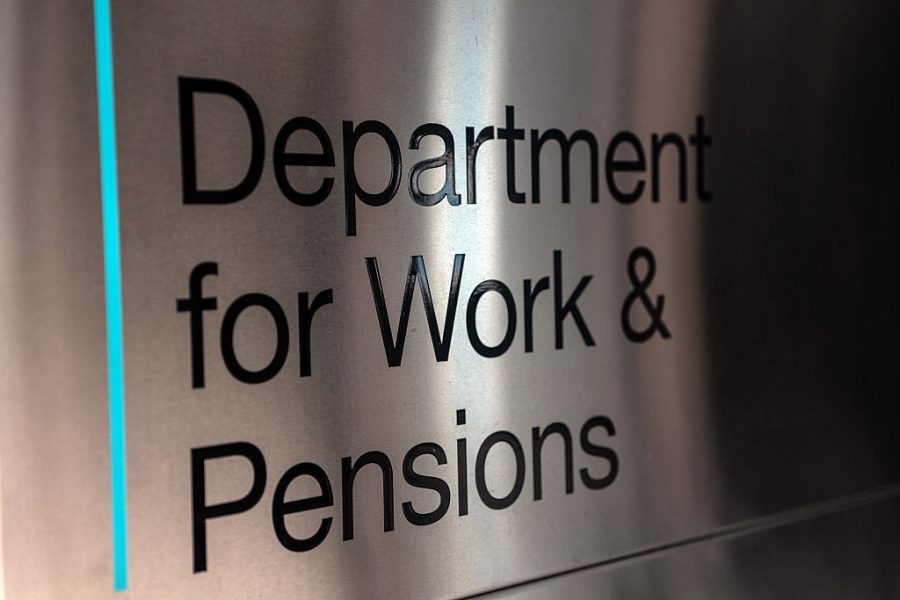Does having money really matter that much? There are those, usually with quite a bit of it, who want us to care less about materialism. But, unequivocally, money really does matter – not because of any status it supposedly brings, but for the freedom it buys: freedom to choose how we live and how we look after others.
Considering this, it seems that the deep disillusionment with mainstream politicians in recent years stems from a protracted and ongoing period of stagnant living standards over which they have presided.
But the truth is that the average person has not got poorer since the global financial crisis. They have got a little bit richer. Employment levels are still exceptionally high. And, both historically and internationally, we are a very rich country. This may explain why average levels of life satisfaction and personal happiness have remained high and about the same since 2011. Take politics out of the equation and life seems a lot better.
Too many people in Britain have too little money. Why?
But this does not mean all is well. This country still has too much poverty – by which I mean relative poverty, widely defined as households earning below 60 per cent of median household income after household costs. The rate of poverty across the population has been pretty static over the past few decades, but child poverty has risen in recent years. This relative poverty measure matters: although people below the relative poverty line may be less impoverished in absolute terms than previous generations, they are still poor relative to the average person and thereby disqualified from typical experiences and opportunities available to their fellow citizens.
So, too many people in Britain have too little money. Why? Those on the political left emphasise structural forces: the powerful exploit, exclude, discriminate, deprive – preventing those with modest means from flourishing. Those on the right, meanwhile, point to individual agency: our efforts and choices primarily determine our life trajectory, no matter the circumstances or characteristics we were born with.
However, where we end up is not always a product of intention – of our own admirable efforts or the malign efforts of others. Rather, a lot of life is a result of randomness – of what the great philosopher John Rawls described as ‘brute luck’.
It can be hard for us to grasp and accept such arbitrariness. But it is ultimately liberating – for our judgement of ourselves and others. We might start being less starstruck by the super-rich. And be less judgemental of those struggling.
Indeed, randomness is a major consequence of a free economy and free society, which those on the centre-right are so keen to conserve and champion. Businesses close. Jobs are lost. Relationships break down. A strong safety net is therefore essential to sustain support for and participation in a free economy and society.
But that does not mean the state should provide sufficient welfare to everyone; just to everyone who needs it. The leftist impulse has been to expand welfare: to universalise it – to supposedly reduce stigma, drive uptake and foster support for government action. Frankly, this is unjustified and unaffordable. The centre-right has not resisted it enough.
The result is a gigantic welfare bill, which – when calculated to include the basic state pension – now totals nearly a quarter of government expenditure.
The first aim for the centre-right should therefore be a slimmer system. We need a social security system that gives more support to far fewer people. All universal benefits should therefore be abolished and instead means-tested. Most radically, we should consider means-testing the basic state pension, as is the case in Australia and Ireland.
These changes will free up money to achieve a second aim: providing a more supportive system for those who really need it. The replacement rate – that is, the amount received in out-of-work benefits relative to the median national salary – in the UK is among the lowest in the developed world for those who have been unemployed for three months.
Since the UK’s savings rates are so low, this initial shock not only pushes those who have a bout of bad lack into punishing poverty, but forces people to search for and accept jobs as quickly as possible. This may be leading to mismatching between skills and jobs, partly explaining the UK’s exceptionally poor productivity.
We could implement reforms to grant more generosity initially. We could learn from social insurance models on the continent. If employees contribute a certain proportion of their wages to such schemes, sometimes matched or even replaced by contributions from employers, they can receive higher income protection during unemployment for a time-limed period above basic welfare payments. In Denmark, those eligible can get up to 90 per cent of their average income, capped, for two years.
These contributory-based, furlough-style schemes could be adapted and applied here. But a simpler solution might just be for the government to fund a new contribution supplement for the standard allowance of universal credit, and for statutory maternity and paternity pay, granted to those with longer work histories.
Finally, in return for a more supportive system upfront, we also need a stricter welfare system. Conditionality is often perceived as punitive, but really it is about nurturing self-discipline and engendering more relational support. It is perfectly reasonable to expect claimants to engage with reasonable and helpful support and structure offered to them. A system that just gives money to people and leaves them to it is cruel. So conditionality should apply more widely: all unemployed claimants of Universal Credit – even those receiving the higher health element because they have been deemed to have limited capability for work – should have appropriate conditions to prepare, plan or search for work.
Both more generous and demanding for claimants – that will be a social security system that improves life chances and reassures taxpayers that support is being prioritised on those who really need and deserve it.
This is an extract from a new essay collection by Bright Blue entitled Mending the net? A new centre-right approach to social security.







Comments